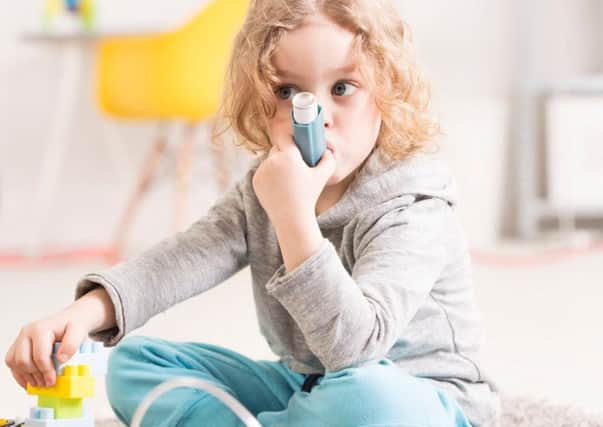Ask an expert: What's the best way to manage my child's asthma?


LloydsPharmacy pharmacist, Francesca Brenca, says: "On average, three children in every UK classroom will haveasthma, making it the most common long-term childhood medical condition.
"It's understandable for parents to worry if their little one hasasthma, but it doesn't mean they can't have a normal, healthy childhood. If it's controlled properly, they can carry on as usual, and the condition shouldn't hold them back in any way.
Advertisement
Hide AdAdvertisement
Hide Ad"Firstly, it's important you understand what medicines your child needs for their asthma, how they work, and when your child should use them. There are two types of inhaler: A preventer inhaler and a reliever inhaler. The preventer helps open up the airways over a period of time to reduce inflammation. This inhaler should be used every day to keep your child's asthma under control. The reliever inhaler should be with your child at all times and is used whenever they experience shortness of breath.
"If your child isn't able to use their inhaler correctly, they may not be getting the full benefit of their medication. Understanding how to use their inhaler correctly can vastly improve how well their condition is managed.
"LloydsPharmacy has a free
Respiratory Support Service to help your child master their technique and demonstrate how the inhaler should be used.
"It's also recommended you note your child's asthma triggers. In some cases, it's obvious what's causing it, but sometimes it could take a little longer to work out. It's important to try and identify a common cause or irritant, so you can help your child avoid it in future and learn how to deal with it. Common asthma triggers include, but aren't limited to, extremes of temperature, changes in humidity, pollen, animal dander, mould, house dust mites, cigarette smoke, foods, stress and some foods.
Advertisement
Hide AdAdvertisement
Hide Ad"You should also ensure the school is aware your child has asthma. The school should have forms for you to complete that detail what medicines they take and when, any specific triggers that they should help your child avoid, and what the signs of an attack are. Make sure your child has their inhalers with them on any school trips and that all teachers know what to do if they have an asthma attack."
For more information and advice, see lloydspharmacy.com/en/info/respiratory-support-service